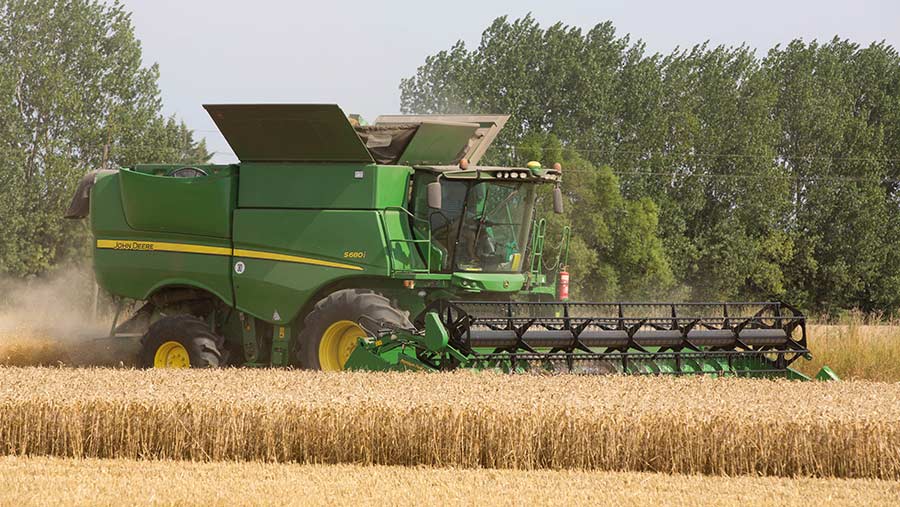FW opinion: Post-BPS sums need doing sooner rather than later
 © Tim Scrivener
© Tim Scrivener We are all by now aware that farmers in England are set to see dramatic reductions in their farm subsidy payments over the next few years, but how big an effect is it going to have?
By 2024, farm businesses of all sizes will see the value of their direct payments fall by half, with larger farms suffering significantly greater cuts in that period.
See also: ELM, environmental and support schemes transition
In contrast, farms in Wales will receive payments similar to those of the current system until 2024. Scotland looks set to maintain its current payment rates until 2025, while plans in Northern Ireland are less clear.
However, this week farm consultancy firm Andersons forecast that there will be 11,700 fewer farm businesses in the UK by 2030. Based on its definition of a farm business, that is a fall of about 20%.
Farm consolidation is happening all the time, even with subsidies, but this prediction sees the pace accelerating dramatically, with the majority of those that shut down being in England as the subsidy safety net drops away.
For many, particularly smaller full-time farmers, the next decade could be one of profound difficulties that will require radically different ways of farming
With daily jobs continually piling up, it can be easy to mentally shelve issues that can be put off until tomorrow.
Sometimes you can know something superficially without truly processing it, but as Andersons says, the key question for every farm business is: “Do you have a plan to prosper through this period of change?”
Of course, this is just a forecast. There could be food scarcity over the horizon that inflates the price of agricultural products for the next decade and throws a lifeline to businesses that would otherwise have gone under.
But the lesson of recent history in many agricultural markets is of sharp swings in volatility – prices fluctuating suddenly up and down for reasons beyond farmers’ control.
Some of you will be waiting for more information on future environmental schemes to see what contribution they will make to future revenue.
At this stage, there is no prospect that these will do a great deal more than reward income foregone from doing something other than pure production agriculture, so it is unlikely to have a big effect on profitability.
So the time to take stock is now – and not just for those teetering on the tightrope between profit and loss.
If you think you are on the winning side of the equation – because you operate in a particularly profitable sector or count yourself among the best producers – then the next decade could be a time of opportunity.
Land could become more accessible and the consolidation of machinery fleets may temporarily soften painfully high kit prices.
Those with the smallest farms, who generally already have other sources of income, are likely to have a better chance of standing their ground as well.
But for many, particularly smaller full-time farmers, the next decade could be one of profound difficulties that will require radically different ways of farming and doing business or, even finding alternative employment.
Ultimately, it is up to individuals to decide how to manage and adapt their own circumstances, but it is time Defra publicly acknowledged that this is the course it has put British agriculture on and it needs to take responsibility for its actions.
Governments in the other regions may be making more sympathetic noises at this stage, but they too have a duty to acknowledge the tough decisions ahead and own the consequences of them.
This week marks five years since the day the Brexit referendum was held. Much has changed in that time, but much more will change in the next decade.

